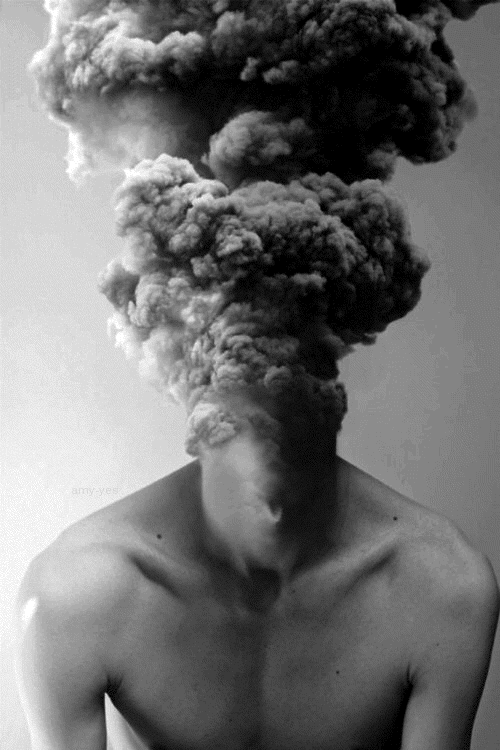Terrestrial Ketus
&
Earthquake Lights
In Vedic Astrology, the South Node of the Moon is often referred to as “Ketu”. The brilliant astronomer R. N. Iyengar found that the term “Ketu” was mentioned in the Vedas 80 times in different forms. Derivatives of the term Ketu often described celestial or atmospheric bodies that related more to comets and asteroids than any singular entity. Vṛddha Garga, Parāśara, Nārada and other sages mention over 100 kinds of long period comets or Ketus. These comets can be linked to different epochs or are associated with periodic asteroids and comets that apparently orbit the expanse between the Sun and the Oort Cloud, Jupiter or other planets.
Some scholars say that there are many different kinds of Ketus, while some propound that there is one sole energy or entity that simply takes a myriad of different forms.
The association of the South Node of the Moon with the name “Ketu” does not appear to have come into vogue till several centuries or longer after the Vedas were compiled.
The many references to Ketus in the Vedas were often linked with connections to Agni(fire or god of fire), dhūma(smoke), and the Maruts (lightning energy). It is evident that through numerous passages and rites dedicated to comets that the compilers of the Vedas gave great respect to comets and asteroids as well as other luminary phenomenon occasionally witnessed in the sky.
If we combine the modern use of the name “Ketu” with a Vedic view of the term we can classify Ketus into 4 distinct categories.
#1 Ketu
The South Node of the Moon. The intersection of the inclination of the Moon's orbit with the ecliptic forms two nodes. The South Node is named Ketu and is often used for prognostications and eclipse calculations. This Ketu is tied to the Chandramana time scheme.
#2 Celestial Ketus
Celestial Ketus are primarily asteroids, meteorites or comets. They are tied to an elaborate clock or Ketu Chakra that has many epochs combined with sub cycles within it to account for the many objects floating in the solar system. These objects repeat on periodic schedules ranging from a few years to several thousand years. How they were calibrated as they were being augmented by the Sun, Jupiter and other gravity influencing factors is unknown, but for the long period comets it appears their time intervals were calculated/calibrated when they were last seen in the heavens, which for many of them was usually every several hundred to several thousand years.
#3 Atmospheric Ketus
Seen on buildings, statues, quadrupeds, destructive implements, weapons, missles and flagpoles. Atmospheric Ketus are a cryptic and mysterious phenomenon. These phenomena are unpredictable and not tied to any periodic cycle or time scheme.
#4 Terrestrial Ketus
Often glowing orbs seen at different times for unknown reasons. They are often spotted close to or on the earth. Some are known to shoot upward into the sky, while others simply glow like a flame with no apparent fire(bhārjika). The most common Terrestrial Ketu that is on its way to being validated by modern science has been given the term “earthquake lights.” These Ketus are not tied to any periodic cycle or time scheme.
The Celestial Ketus are obviously the most dangerous type of Ketu. Their references, and the often elaborate ancient rites to propitiate them give no doubt that the ancients were well aware that comets and asteroids can cause great destruction if they come close to or collide with the Earth. This is also evident from the fact that aside from a select few, most comets are classified and accompanied with a malefic portent at merely the simple sight of their appearance, even if that appearance occurs only once every several hundred or thousand years.
The Chelyabinsk meteor in Russia blew the doors off this factory as it disintegrated in the sky
The Chelyabinsk meteor in Russia effortlessly shattered windows and blew this chap across the room as it disintegrated many kilometers away
Ketu is the flag of victory, a great revolutionary that can cross any boundary and overcome any obstacle or limitation. Ketu represents an arcane form of mokṣa or liberation and his influence can trigger profound awakenings and unexpected transformations.
Earthquake Lights – Live Science
It is important to note that the aforementioned phenomenon may have nothing to do with florescence, phosphorescence or UFOs. These phenomenon also do not have anything to do with strange glowing phenomenon on the horizon which is also classified into a completely different category. In the case of UFOs the lights are moving as opposed to the phenomenon with terrestrial and atmospheric Ketus where the lights are glowing or flashing, but almost always stationary, or in some rare cases emanating from the earth like a fountain towards the sky. UFOs are generally classified under the vimāna category and have nothing to do with Ketus
Earthquake Lights
Terrestrial Ketus
Peru
Earthquake Lights
Mexico
Earthquake Lights
Turkey
Earthquake Lights
Turkey
Earthquake Lights
Earthquake Lights
New Zealand
Earthquake Lights
China
Terrestrial Ketus
Portugal
Earthquake Lights
Morocco
Earthquake Lights
Terrestrial Ketus
Petone
Atmospheric Ketus?
China
Atmospheric Ketus
China
Earthquake Lights
Terrestrial Ketus
Japan
Atmospheric Ketu
Terrestrial Ketu
Atmospheric Ketu
This could be ball lightning
Transformer exploding
Normal speed and Slow motion










